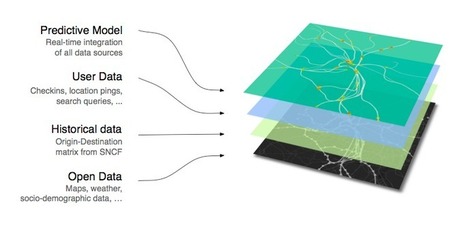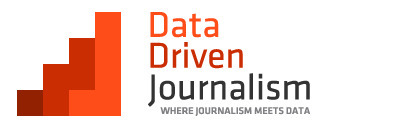Get Started for FREE
Sign up with Facebook Sign up with X
I don't have a Facebook or a X account

 Your new post is loading... Your new post is loading...
 Your new post is loading... Your new post is loading...

Arent van 't Spijker's curator insight,
February 13, 2014 7:15 AM
Literally a list of 100 data innovations. I particularly like IBM's content analysis of ingredients and cooking methods to create new and exotic recipes.

luiy's curator insight,
November 16, 2013 12:50 PM
To design the first steps, the City of Berlin performed an Open Data Online Voting. More than 1.300 participants voted for three interesting categories out of a list of 20. A list from “Administration” via “Education” and “Health” to “Waste” was given. Five categories covered nearly 50 percent of the responders interest. The statistical results of the Survey were compared to a SAS survey about the general interest in Open Data, Transparency and Access from 2010. The Citizens were also asked, if they would read published Open Data and work with Open Data, to create Apps and Visualisation of combined Data Sets. This could be used as a blueprint for other cities. |

luiy's curator insight,
November 18, 2013 7:54 AM
Nous déployons quotidiennement des pratiques personnelles de gestion et d’exploration des données : comprendre un sondage entendu à la radio, lire les résultats d’analyses biomédicales, analyser son relevé de banque en ligne, manipuler une liste de contacts, un fichier de tableur, etc. Ces pratiques reposent sur des savoirs et savoir-faire qui passent souvent inaperçus ou qui ne sont pas suffisamment formalisés. La plus part du temps, ils ne sont pas du tout identifiés, comme le prouvent ces quelques expressions glanées au fil de discussions “Avec Google, j’ai réponse à toutes mes questions”, “Aujourd’hui tout le monde sait se servir d’Excel”, “Une visualisation pertinente, c’est une belle visualisation”, “Je n’ai rien à cacher, pourquoi je le ferais ?”, “Devant une data visualisation, le lecteur n’a pas à lire, il comprend plus vite”…
Or, nous sommes loin d’être tous égaux dans la manipulation des données : dans la compréhension de statistiques, dans la prise en main d’un fichier tableur un peu costaud, dans le bidouillage d’une base de données, dans la compréhension des enjeux… Les compétences requises mêlent à la fois un savoir geek (informatique), expert (statistique), critique (sciences humaines - travailler les corrélations), parfois juridique…
Quelles sont les compétences "data" spécifiques ? La communauté Infolab s’est penchée sur la question lors de plusieurs ateliers successifs. En voici les résultats. |











What else can we predict? In theory, any event that is not random, provided we have enough data to model the context. Examples include passenger load in public transports, availability of parking spots, traffic jams, waste production, energy consumption and revenues of a shop in a specific street. These all share a common underlying principle: use context rather than history to predict behavior.
In themselves, each of these predictions could lead to amazing new products and services. The real power though comes from integrating everything together and modeling an entire city and its interactions with people. For instance, if you can predict where people will need to go tomorrow, then you can create optimal bus routes, minimizing time to destination and walking distance, taking into account predicted traffic, weather and garbage collection schedules. In this ideal system, all services would be optimal and available to citizens at anytime. We call this new way of designing cities "Algorithmic Urbanism".